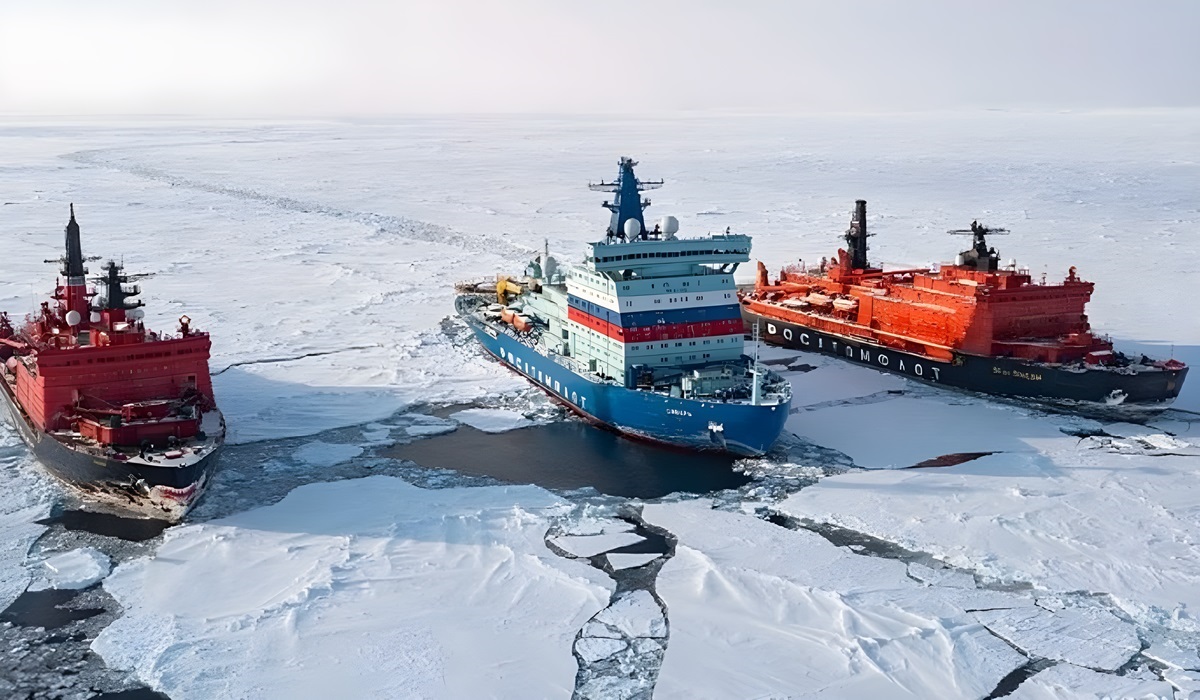China and Russia Strengthen Polar Partnership on Arctic’s Strategic Routes
- Xuemei Pal
- Europe
- China
- D.O.C Supplements - Trending News
- East Asia
- November 28, 2024

Image Credit, thediplomaticinsight
China and Russia have formally launched a joint effort to enhance cooperation in Arctic shipping routes, holding the inaugural meeting of a newly established subcommittee in St. Petersburg. This step underscores the growing strategic interests of both nations in the rapidly changing Arctic region. The meeting brought together China’s Minister of Transport Liu Wei and Russia’s Transport Minister Alexey Likhachev, who also serves as the head of Rosatom, Russia’s nuclear energy corporation.
The subcommittee is part of a broader framework of regular bilateral government meetings aimed at addressing mutual interests. According to a statement from China’s Ministry of Transport, the discussions focused on improving Arctic shipping safety, advancing polar shipbuilding, and leveraging the region’s growing significance in global trade.
Liu Wei described the subcommittee as a practical tool for addressing shared goals in Arctic development, emphasizing that it reflects agreements made by leaders of both countries. Alexey Likhachev highlighted the timing of the initiative, marking 75 years of diplomatic relations between China and Russia, and expressed Rosatom’s intent to contribute to Arctic navigation and technological advancements in polar shipping.
Key outcomes of the meeting included agreements on the subcommittee’s structure, objectives, and operational mechanisms, as well as the signing of critical regulatory documents. Working groups presented reports on shipping development, navigation safety, and polar ship technology, setting a roadmap of tasks to be completed by 2025.
While China and Russia framed the meeting as a historic step forward, their motivations clearly extend beyond mutual cooperation. Both nations view the Arctic as a critical strategic and economic region, with new shipping routes opening due to melting ice. These routes offer faster alternatives for global trade and provide access to untapped natural resources, making the Arctic a focal point of international competition.
By collaborating on Arctic shipping, China and Russia aim to solidify their presence in a region increasingly shaped by geopolitical rivalries. However, their growing partnership in the Arctic will likely raise concerns among other global powers with interests in the region, including the United States, Canada and European nations, who may view this cooperation as a bid to dominate the Arctic’s future.








